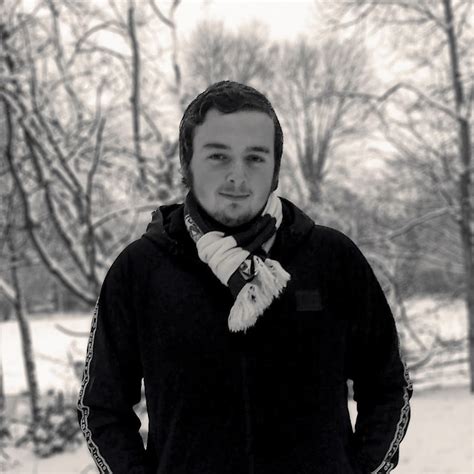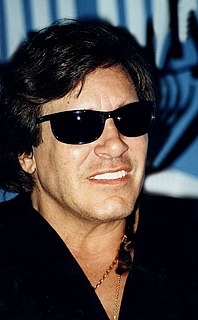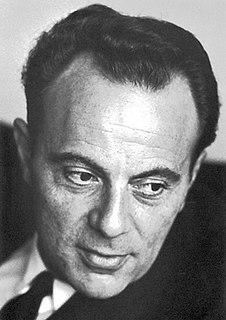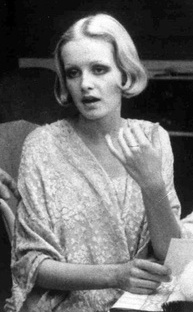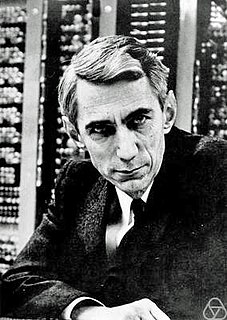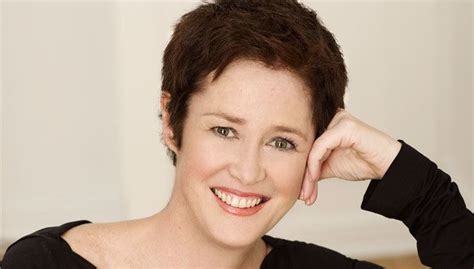A Quote by David Brin
...where were answers to the truly deep questions? Religion promised those, though always in vague terms, while retreating from one line in the sand to the next. Don't look past this boundary, they told Galileo, then Hutton, Darwin, Von Neumann, and Crick, always retreating with great dignity before the latest scientific advance, then drawing the next holy perimeter at the shadowy rim of knowledge.
Related Quotes
In a very real sense, therefore, advocacy of the doctrine of continuity [i.e evolutionism] has always necessitated on retreat from pure empiricism [i.e., logic an observation], and contrary to what is widely assumed by evolutionary biologists today, it has always been the anti-evolutionists [i.e creationist], not the evolutionists, in the scientific community who have struck rigidly to the facts and adhered to a more strictly empirical approach... It was Darwin the evolutionist who was retreating from the facts.
When you're young, you always feel that life hasn't yet begun—that "life" is always scheduled to begin next week, next month, next year, after the holidays—whenever. But then suddenly you're old and the scheduled life didn't arrive. You find yourself asking, 'Well then, exactly what was it I was having—that interlude—the scrambly madness—all that time I had before?
There was a seminar for advanced students in Zürich that I was teaching and von Neumann was in the class. I came to a certain theorem, and I said it is not proved and it may be difficult. Von Neumann didn't say anything but after five minutes he raised his hand. When I called on him he went to the blackboard and proceeded to write down the proof. After that I was afraid of von Neumann.
John von Neumann gave me an interesting idea: that you don't have to be responsible for the world that you're in. So I have developed a very powerful sense of social irresponsibility as a result of von Neumann's advice. It's made me a very happy man ever since. But it was von Neumann who put the seed in that grew into my active irresponsibility!
The only way I have ever understood, broken free, emerged, healed, forgiven, flourished, and grown powerful is by asking the hardest questions and then living into the answers through opening up to my own terror and transmuting it into creativity. I have gotten nowhere by retreating into hand-me-down sureties or resisting the tensions that truth ignited.
The game was that of continually inventing a possible world, or a piece of a possible world, and then of comparing it with the real world... a race without end... What mattered more than the answers were the questions... For me, this world of questions and the provisional, this chase after an answer that was always put off to the next day, all that was euphoric. I lived in the future... I had turned my anxiety into my profession.
My greatest concern was what to call it. I thought of calling it 'information,' but the word was overly used, so I decided to call it 'uncertainty.' When I discussed it with John von Neumann, he had a better idea. Von Neumann told me, 'You should call it entropy, for two reasons. In the first place your uncertainty function has been used in statistical mechanics under that name, so it already has a name. In the second place, and more important, no one really knows what entropy really is, so in a debate you will always have the advantage.'
The Christmas presents once opened are Not So Much Fun as they were while we were in the process of examining, lifting, shaking, thinking about, and opening them. Three hundred sixty-five days later, we try again and find that the same thing has happened. Each time the goal is reached, it becomes Not So Much Fun, and we're off to reach the next one, then the next one, then the next.
Then I place the blade next to the skine on my palm. A tingle arced across my scalp. The flood tipped up at me and my body spiraled away. Then I was on the ceiling looking down, waiting to see what would happen next. What happened next was thet a perfect, straight line of blood bloomed from under the blade.The line grow into a long, Fat bubbel, A lush crimson bubbel that got bigger and bigger. I watch from above, waiting to see how big it would get before it burst. when it did, I felt awesome. Satisfied, finally. Then exhausted.
It was a figure painting class, where you had a model, and [Robert von Neumann ] would wander around and he'd come up behind someone and say, "Well, what are you trying to do?" And if you told him what you were trying to do, he would then proceed to discuss this with you and suggest things that you might look at and ways in which you could improve what you were attempting to do, etc - never worked on your painting, never touched your painting but talked extensively about what you were trying to do.


